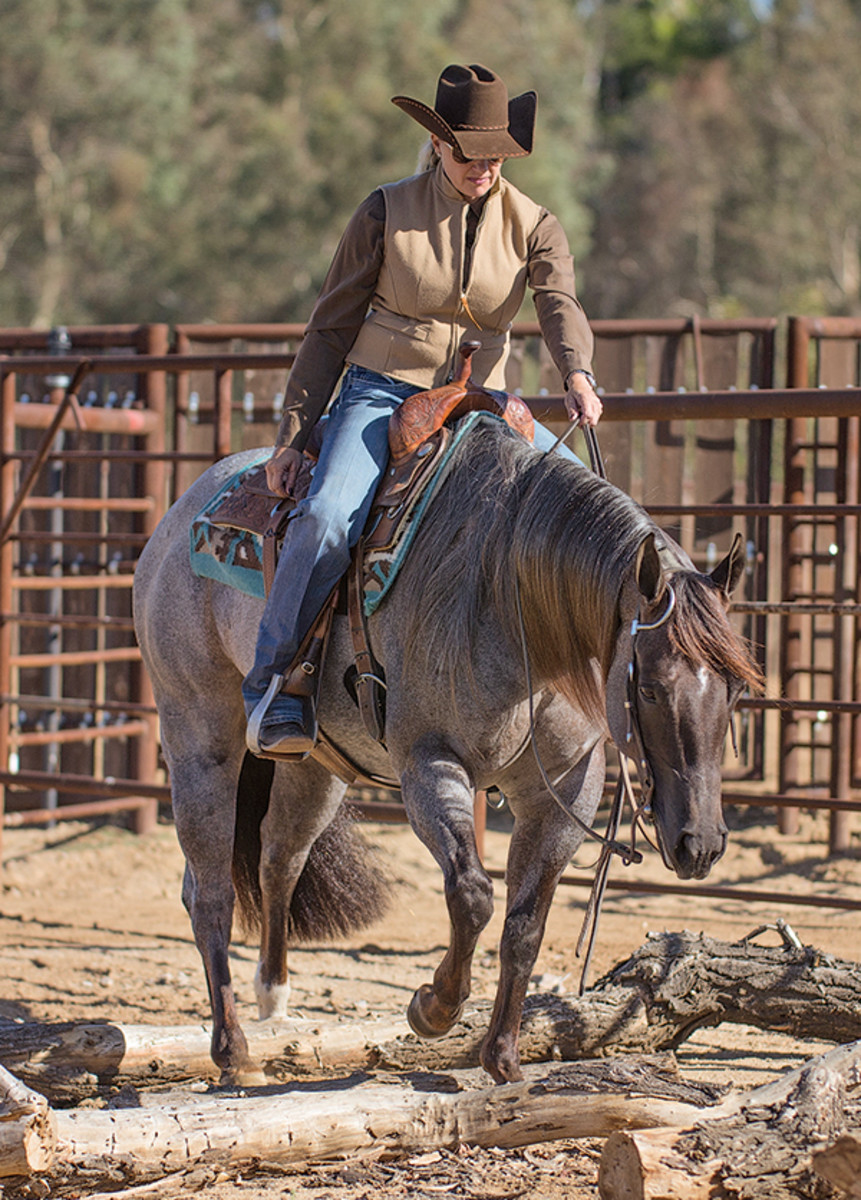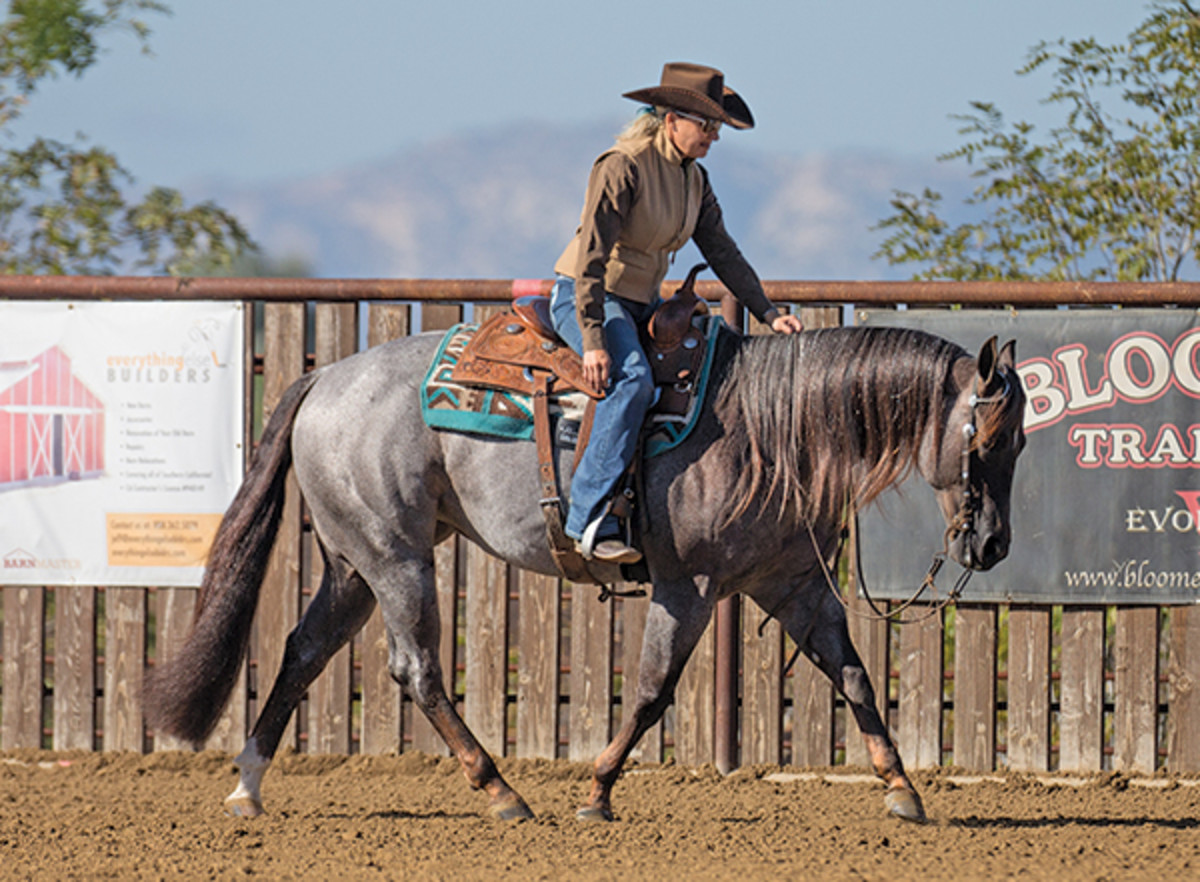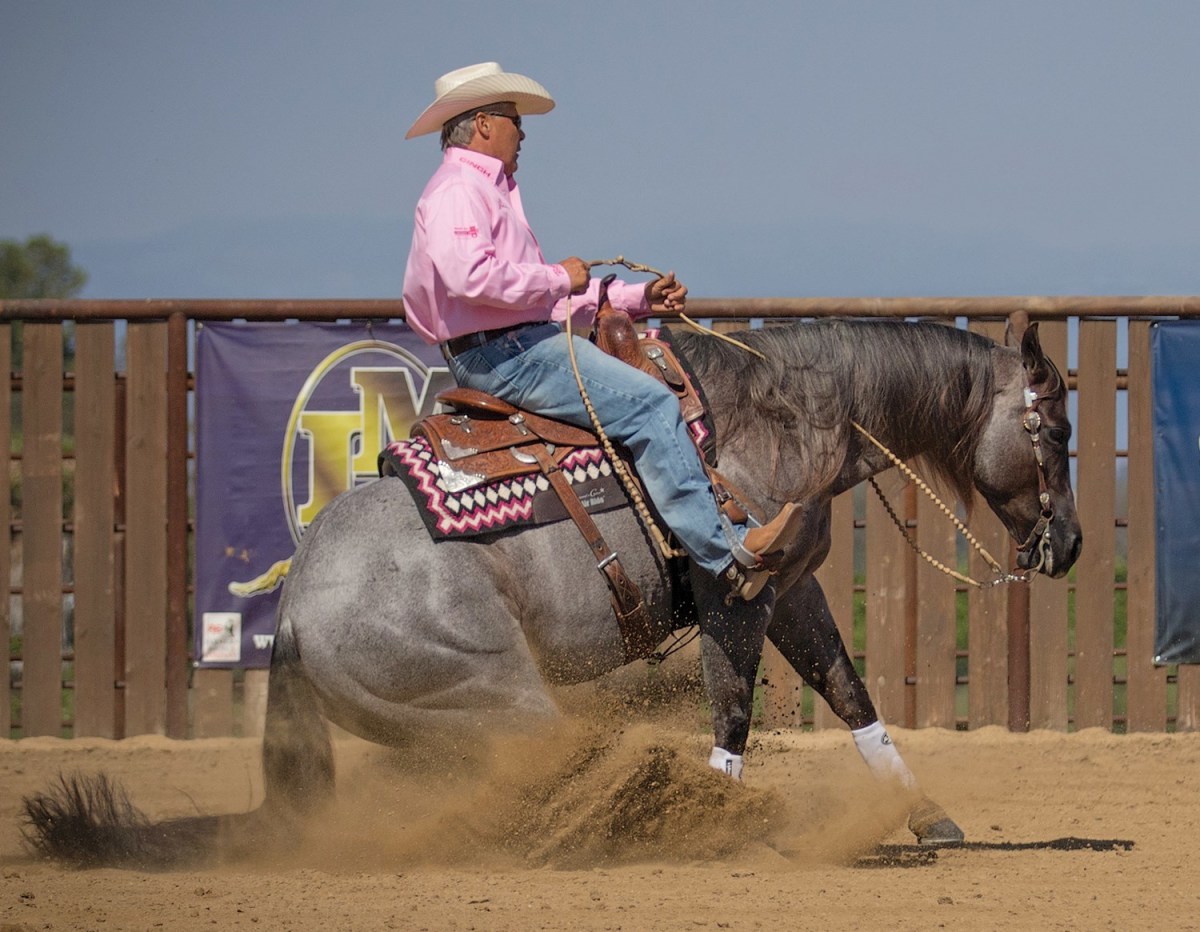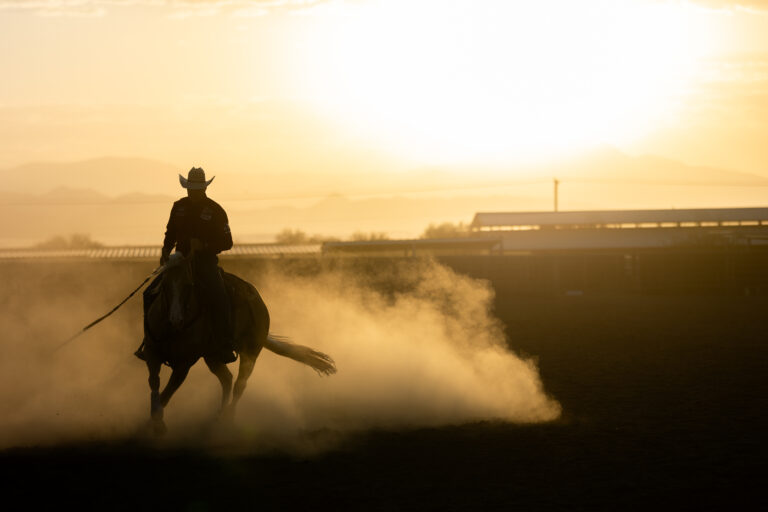Before the focus on specialization in show horses, it wasn’t uncommon to see a horse compete in multiple classes—pattern work, rail work, cattle events, English and Western classes. While specialization has its benefits, it can get stale. Adding an event or diversity to your horse’s everyday routine helps keep both you and your horse fresh, engaged, and motivated. After all, how many circles can a reiner lope without losing interest? Or how many times can a Western pleasure horse go around on the rail without developing bad habits or a poor attitude? How many days can you spend doing the same thing over and over in an office cube and not get bored? Probably not many, and that’s why you have horses as a hobby.

Here I’ll offer my advice for choosing an event and getting started, as well as discuss the role the ranch riding classes have played in encouraging horses and riders to branch out.
Find the Right Fit
To choose the right class to branch out, first consider your resources. If you don’t have access to cattle, or cattle classes aren’t offered at many of the shows you attend, then boxing or working cow horse probably isn’t the best choice. But consider working a flag if that sort of action could help your horse and make things a little more exciting for you. I know several Western pleasure trainers who work their horses on the flag to give them more handle and to brighten the horses’ expression.
Western pleasure horses can often benefit from obvious choices like Western riding and trail. But don’t rule out any option. When I showed pleasure horses, I used them as turnback mounts for cutting. It gave their brains a completely different way to think and used their bodies in ways that rail work never would. Keeping your options open allows more opportunities for you and your horse to have fun while learning a new endeavor.
Get Started
No matter the class you choose to try, go to a few events and closely watch how the horses are shown in that discipline. How do the exhibitors handle the horses? Is the presentation—tack, attire, grooming—different from what you’re accustomed to? (For example, minimal silver on tack, no hoof black or banding, and bling-free attire in ranch riding.) Watch all levels compete, but especially the open classes, to get a good feel for the class.
Once you’re familiar with the event and its key players, find someone to haul to for a few lessons. Getting a solid start with educated guidance will set you up for success. Not to mention, if you have a pleasure horse you’ll need to add flying lead changes and going over obstacles to your skill set. That can require professional help to get it right and prevent bad habits from the start.

When you’re ready to go compete, set realistic goals for your first outings, and then measure your progress as you go along. You might find that the new class isn’t quite right for you or your horse, and you need to find something else. Or you could find that your horse excels at the event and performs better than in his specialized class.
Ranch Riding’s Role
Ranch riding and other ranch classes are the hot topics at breed and open shows. They’re some of the biggest classes, and it’s been good for the industry in terms of bringing people back to compete at shows. But it’s done even more for horses. Your pattern-focused horse, whether it’s reining, trail, or Western riding, can go in the arena and compete alone, like he’s used to, but in a different format. That teaches him to relax in the pen, while still using the skills he excels at in his specialization. Plus you add skills that improve his self-carriage (such as the logs), hone his attention (various patterns mean he must listen to you), and brighten his life a little with something new.
A Bonus for You
As you branch out with your horse, you widen your circle of friends. Meeting new people can open even more doors to try new things and travel to new events. Additionally, your horse’s value increases if you can successfully add more skills to his resume.

There’s always something new to try. Even if it’s not a show class—go for trail rides in new places, take your horse to hang out at a sorting event, just try something new. It’ll build your relationship with your horse, increase your passion, and enhance your horse life more than you might expect.

A multiple AQHA world champion, Avila has also won three NRCHA Snaffle Bit Futurities, the NRHA Futurity, and two World’s Greatest Horseman titles. He received the AQHA Professional Horseman of the Year honor. His Avila Training Stables, Inc., is in Temecula, California. Learn more at bobavila.net.






